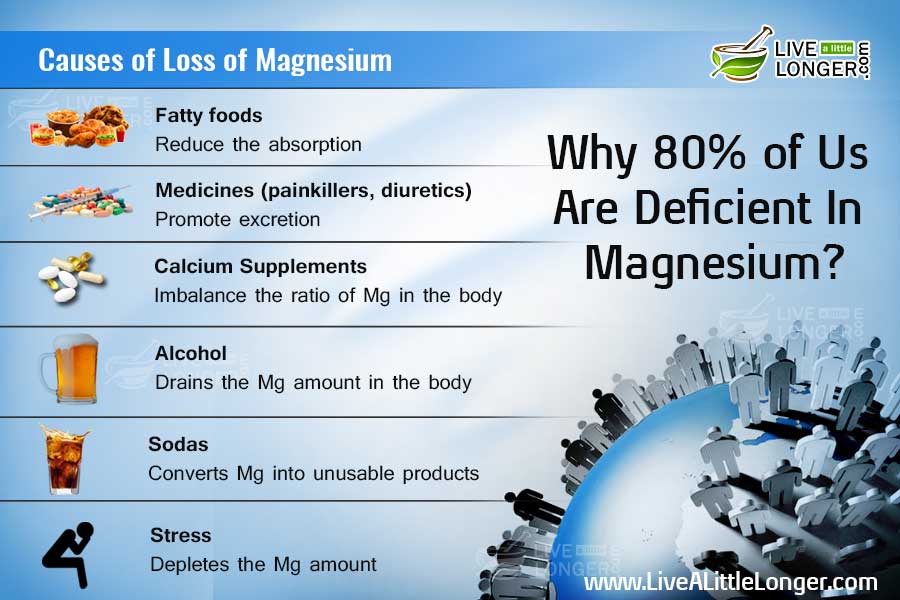Before starting this article, let us first dwell why should we have nutritious food? The answer is — because our bodies do not have the ability to produce some nutrients that are required for its proper functioning, we have to take them as food. To understand what these ‘minerals’ are – the definition is as follows: They can be classified as inorganic substances and can be seen in non-living things such as soil, rocks or water. In the case of natural things, they can be found in plants and animals.
Some plants contain minerals naturally, or they absorb these components from the environment or produce them. When humans eat these plants, we obtain these essential substances. However, we all lack in some nutrients. Though there are many, magnesium is something that most of us lack in. To unveil the importance of this trace element, we have well researched and written it in a proper format for you. Read on.
Why Do We Need Dietary Minerals?
The minerals that we obtain from our food are necessary for the functioning of the body. They are responsible for having strong teeth and bones, healthy hair, proper functioning of nerves, lustrous skin and even for metabolism.
There are many minerals, which are required in various dosages. The lesser amount of minerals needed in small amounts is known as ‘trace elements’ or ‘micro minerals.’ As with all good cases, high intake of minerals can also lead to illness. In the case of children, it is the duty of the parents to ensure proper intake of minerals for proper growth. Similarly, breastfeeding women and those on the verge of pregnancy need to monitor their mineral intake on a daily basis.
Some experts are of the opinion that a magnesium deficiency can lead to many illnesses. Lack of magnesium can give rise to:
- Muscle spasms
- Twitching
- Inability to control the bladder
- Loss of hearing
- Osteoporosis
- Loss of bladder control
- Epilepsy
Now let us see why most people are deficient in magnesium. Magnesium can be described as the fourth important element in the body next to oxygen, water and basic food.

1. Magnesium Is Lost In The Diet
Going by the fast-paced world, the kind of diet we have these days contain plenty of fat, oil, salt, and sugar. Chips, fries, and other junks have replaced healthy foods like seeds and nuts. However, if you are a lover of fresh foods, but could not make way for them in the diet, you can start by including leafy greens, seeds, nuts, and grains in the diet. You will be elated to know that magnesium is a vital part of chlorophyll, the pigment that gives the color green to plants. Almost all the green vegetables are rich in magnesium.
Also, note that a diet rich in fat can reduce the absorption of magnesium in the intestines. If you have a penchant for high sugar foods, so goes your magnesium in the form of urine. Drinking sodas (they contain phosphates) can lower the level of magnesium in the body. Drinking water by the softening process can remove magnesium. Increasingly, the Government water source departments often remove magnesium.
2. Taking Calcium Supplements
The perfect dosage makes for better living, but an excess of calcium can make way for more magnesium resulting in more need of this mineral.
3.Ailments
If you are taking diuretic drugs, you need to have magnesium-based foods. Excessive urination might cause loss of magnesium and potassium, and your blood pressure can shoot to a new high.
There are also other ailments which make headway to harmful effects of depletion of magnesium. The diseases which can harm your health by non-absorption of magnesium is as follows:
- Crohn’s disease
- Whipple’s disease
- Short bowel syndrome
- Celiac sprue
- Intestinal lymphangiectasia
- Cystic fibrosis
- Intestinal mucosal diseases
- Cholestatic liver disease
- Bartter’s syndrome
- Pancreatic insufficiency
- Terminal ileal diseases
- Systemic mastocytosis
- Kidney transplant
- Radiation enteritis
- Renal tubular acidosis
- Acute tubular necrosis
- Tubular Disorders
- Congenital renal (kidney) magnesium wasting
- Interstitial nephritis
Although these diseases can be identified, you need to keep your eyes open for muscle cramps, high blood pressure, irritability, and fatigue as these symptoms can give you information on the lack of magnesium in the body.
4. Addiction and Alcoholism
Another major cause for depletion of magnesium from the human body is due to addiction of smoking and alcohol intake. Excessive drinking and smoking may cause a harmful change in the liver resulting in complications such as vomiting, diarrhea, and liver diseases. They deplete the level of magnesium in the body and during non-addiction treatment; withdrawal symptoms tend to eliminate more magnesium.
5. Excessive Excretion of Minerals
The kidneys are the vital organs, which eliminate magnesium, and they are also the ones, which reabsorb the same for the a healthy functioning of the body. But due to excessive alcohol and smoking, the rate of excretion is doubled.
In the case of diabetics, the excretion is more in both type 1 and type 2. To know more about this ailment, why don’t you have a look at this article? To know more about the popular myths of diabetes, you can also look at this article.
6.Few Medications Can Cause Magnesium Deficiency
Medicines are one of the major reasons for people to lack in magnesium. These usually include diuretics, painkillers, and antibiotics. These medicines carry out the action by inhibiting absorption or enhancing excretion of magnesium by the kidneys.
7. Other Causes
Stress is one of the major contributing factors for loss of magnesium. Our adrenal glands are put to high pressure, and in order to ward off anxiety and depression, the magnesium sources are depleted.
As explained above, stress can produce a reversal of the levels of magnesium in the body and this can be because of conditions like:
- Burns
- Liver disease
- Surgery
- Diabetes
- Irregular release of hormones
The conditions and the prescribed medications can not only raise the acidity levels in the stomach but also the ability to break down foods and supplements for absorption of valuable nutrients. As you age, the metabolism level reduces and so is the ability to absorb magnesium.
8. Has Magnesium Been Depleted Off Mother Earth?
It is sad that recent farming methods have depleted MOTHER Earth of all the natural magnesium present in the soil. Also, there are hybrids in some plants which do not require magnesium to grow, and the recent fertilizers have potassium, phosphorus, and nitrogen with the traceable quantity of magnesium.
The Day-to-day Factors That Can Deplete Magnesium
- Excess intake of caffeine
- Consumption of more sugar based recipes
- Preferring artificial additives, processed food and alcohol
- Estrogen dominance
- Mineral oil
9. Poor Intestinal Absorption of Minerals
The pH has to be maintained properly for the magnesium to be absorbed. If the environment is alkaline, then lesser are the chances of absorption of this mineral magnesium.
To have a regular functioning of the body processes, and for an overall healthy diet, you can choose:
Leafy Green Vegetables
- Spinach
- Kale
- Collard Greens
- Swiss chard
- Turnip Greens
- Broccoli
Nuts & Seeds
- Sesame seeds
- Cashews
- Brazil Nuts
- Almonds
- Mixed Nuts
- Walnuts
- Pine nuts
- Peanuts
- Pecans
Fishes
- Pollock
- Turbot
- Tuna
Beans and Lentils
- White Beans
- French Beans
- Black-eyed Peas
- Kidney Beans
- Chickpeas (Garbanzo)
- Lentils
- Pinto Beans
Whole Grains (Brown Rice)
- Quinoa
- Millet
- Bulgur
- Buckwheat
- Wild Rice
- Whole Wheat Pasta
- Barley
- Oats
The other sources of magnesium in a single frame are avocados, bananas, dried fruits (figs, dates, apricots and prunes).
While concluding the article, we would like to reiterate that calcium is one of the minerals advertised more because it is found easily in milk and its products. Dairy products’ producers and others have made a heyday by good marketing gimmicks for the promotion of calcium. However, it also has to be kept in view that magnesium is also a vital mineral by which the body will perform all its natural functions – the heart, kidneys, and muscles.
Magnesium is equally important like Iron and chronic low-levels of magnesium can lead to serious issues like irregularities in heartbeat and even seizure risk.
Magnesium is stored in high quantity in your bones and when the deficiency is not taken care of for long time then it will start to weaken your bones. Include magnesium-rich foods in your daily diet and following up with a doctor will give you more ways to treat and solve Magnesium deficiency effectively.
While looking at the list above, containing magnesium-based foods, you would have known that a proper diet can easily solve many of the symptoms of this mineral deficiency. Since you are ingesting these foods for solving the deficiency of magnesium, you will also have the advantage of ingesting minerals, dietary fiber, vitamins and other nutrients.



This much !!!! Awwww need to take all minerals